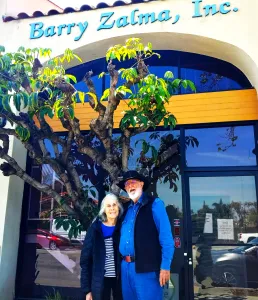Insurance Litigants Should Never Play Games With Discovery

PLAINTIFF ACTED INAPPROPRIATELY IN DISCOVERY DISPUTE
Post 4889
See the full video at https://rumble.com/v5eeafl-insurance-litigants-should-never-play-games-with-discovery.html and at https://youtu.be/hoeAq5Wq5AY
In an insurance coverage action where Plaintiff alleged that Defendant breached its flood insurance policy by paying less than what Plaintiff asserts was the appropriate coverage amount under the policy, there was a dispute as a result of Plaintiff’s first set of interrogatories and first requests for production. On July 2, 2024, Plaintiff sought to initiate a Local Civil Rule 37 conference to discuss resolution of certain disputed items. The parties met on July 9, 2024. On July 26, 2024, Defendant sent Plaintiff a letter in response to the July 9, 2024, conference articulating Defendant’s position on certain discovery requests and agreeing to supplement its production where possible.
In Shane Collins v. American Bankers Insurance Company Of Florida, No. C23-1959-JCC, United States District Court, W.D. Washington, Seattle (August 29, 2024) the discovery dispute was resolved by the USDC finding the Plaintiff did not establish an impasse existed about the discovery discussions.
BACKGROUND
The record did not demonstrate an impasse, any subsequent conferral or attempt to confer, or any agreement in filing the Joint Submission.
DISCUSSION – Legal Standard
Parties may obtain discovery regarding any non privileged matter that is relevant to any party’s claim or defense and proportional to the needs of the case. If requested discovery is withheld inappropriately or goes unanswered, the requesting party may move to compel such discovery. The Court also has broad discretion to decide whether to compel discovery.
A party filing a motion to compel under Local Rule 37 may do so unilaterally or jointly. The joint option follows an expedited procedure and affords parties the benefit of same day noting. Importantly, the parties must affirmatively agree to utilize the expedited procedure.
The motion must include a certification that the moving party has “in good faith conferred or attempted to confer with the person or party failing to make disclosure or discovery in an effort to resolve the dispute without court action.” Fed.R.Civ.P. 37(a)(1).
A good faith effort to resolve discovery disputes requires an exchange of information until no additional progress is possible.
Plaintiff’s “Joint” Submission
Here, there is no indication that the parties agreed to file the LCR 37 Joint Submission. In fact, based on the record, it appears Plaintiff has entirely neglected the expedited procedure detailed in Local Rule 37 and proceeded without affirmative agreement from Defendant. Rather than share an initial draft with Defendant and allow Defendant seven days to insert its rebuttal, Plaintiff instead sent a final draft on July 31, 2024 and then only gave Defendant two days to respond.
Plaintiff ultimately filed the motion 12 days after it sent Defendant the “final” draft. However, the Court had no way of knowing if the parties agreed to or even complied with LCR 37’s procedural requirements in the meantime because the only record of discussion between the parties specifically regarding the motion is insignificant. Moreover, after receiving the purported final draft from Plaintiff, Defendant continued to question the need for a joint motion. The fact that Defendant questioned the need for a joint motion even after Plaintiff shared the purported final draft demonstrates the lack of agreement.
There is also no indication that the parties were at an impasse when Plaintiff filed the “joint” motion. Indeed, post-conference communications show that the parties agreed and expected that Defendant would continue to supplement its discovery responses. Ongoing discussions after an LCR 37 conference preclude a finding that no additional progress was possible. Defendant also provided Plaintiff with at least one supplemental production between the July 9, 2024, conference and the day Plaintiff filed the motion. The post-conference communications and supplemental production show the parties had not and have not reached an impasse justifying the Court’s intervention. As such, the Court concluded that the parties have not met the meet and confer certification requirements of Rule 37.
For the foregoing reasons, the Court denied the LCR 37 “Joint” Submission without prejudice.
Discovery in insurance disputes often bring about a lack of respect and cooperation between the parties. The courts, by rules like LCR 37, expect the litigants and their counsel to resolve their disputes – as much as possible – before seeking the assistance of the court. The parties submitted a discovery dispute to the court before they reached an impasse while meeting and conferring about the dispute. They failed to work together and the “Joint” submission was not joint and not submitted after the parties reached an impasse.
 (c) 2024 Barry Zalma & ClaimSchool, Inc.
(c) 2024 Barry Zalma & ClaimSchool, Inc.
Please tell your friends and colleagues about this blog and the videos and let them subscribe to the blog and the videos.
Subscribe to my substack at https://barryzalma.substack.com/subscribe
Go to X @bzalma; Go to Newsbreak.com https://www.newsbreak.com/@c/1653419?s=01; Go to Barry Zalma videos at Rumble.com at https://rumble.com/account/content?type=all; Go to Barry Zalma on YouTube- https://www.youtube.com/channel/UCysiZklEtxZsSF9DfC0Expg
Go to the Insurance Claims Library – https://lnkd.in/gwEYk
Like this:
Loading…
Related
About Barry Zalma
An insurance coverage and claims handling author, consultant and expert witness with more than 48 years of practical and court room experience.



